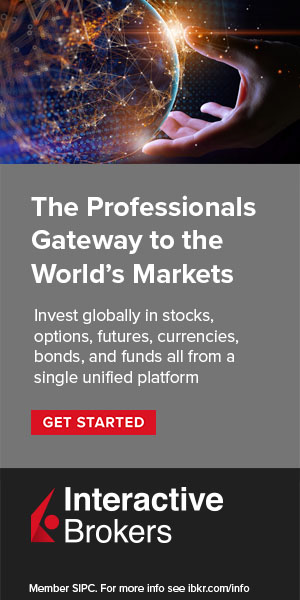In this, the last newsletter on Wells Fargo (I’m impatient to write about a UK company I’ve just invested into this week), I’ll outline the key qualitative factors needed for a successful bank. This is followed by a quick summary of what has happened to Wells Fargo and Berkshire Hathaway’s investment in it over the last 22 years.
The business philosophy followed by Wells Fargo under the twelve year leadership of Reichardt gives us clues as to why it was able to easily withstand the 1990 – 1993 Californian recession. The philosophy inculcated in every employee, from teller to senior executive, was set out in the 1994 Annual Report following Reichardt’s stepping back from an executive role aged 63 (Buffett tried to persuade him to stay. Reichardt told the Los Angeles Times (July 20 1994) He’d like to see people work forever. I told him, ‘Warren, there just ain’t no way.’”)
Reichardt remained on the Board of Directors until 1998. The new Chairman, Paul Hazen, and President, William Zuendt, were proud of the culture they had helped create under Reinhardt’s leadership and so they prominently displayed the key principles which they said can be easily understood and applied by anyone working at Wells Fargo in their 1994 Annual report:
RUN IT LIKE YOU OWN IT
“Our managers take responsibility for operating like owners of their business units. Owners know where every dollar is spent. They know the return they’re earning on their capital. They set targets for the returns they expect from planned investments because they are using their own money. Their stake in the Company leads to disciplined decisions and solid accomplishments”
They added that employee compensation was designed to encourage owner-like behaviour. For example, executive compensation was linked to Company return to shareholders. Senior executives were expected to hold a significant amount of the firm’s shares so they were rewarded alongside shareholders in the good times and shared in losses in the bad times. Furthermore, all employees were encouraged, and half took up, the offer to hold shares through various employee stock purchase plans.
KNOW THE NUMBERS
“Simply tracking revenues and expenses isn’t enough. Managers must know the dynamics of their business – where they make money and where they lose it. They must test each potential deal or initiative for the risks involved against the rewards to be gained.”
Managers were held accountable for the extent to which they achieved above industry norms regarding return on the equity their businesses employs.
KNOW YOUR CUSTOMER
“Knowing each of our wholesale customers and learning as much as possible about our retail customers are basic to our business…In our retail business, we do a great deal of behavioural analysis top know our customers.”
This principle enhanced the ability to sell additional products. For example, customers’ creditworthiness was assessed ahead of time so that when they asked for, or were prompted to consider, a consumers loans they were already pre-approved. Staff were encouraged to make a good offer when the customer next contacts the bank. They wanted to differentiate themselves from other financial service companies by providing superior customer service, always on the search for new products, often products customers hadn’t even thought of getting from a bank. “Good products and delivery options attract new customers to wells Fargo. Great service will keep them.”
DEVELOP GOOD PEOPLE
“We look for people who not only have the relevant knowledge and skills, who also understand the competitive environment, have a clear vision of how their job fits into the business, and then get the job done right.”
Managers were granted increased authority and autonomy as they proved worthy. This meant producing superior results for shareholders and customers. Entrepreneurial thinking and decentralised decision-making were considered important. They wanted their bankers to run each unit as though they owned it. “Over the years, our success in developing such managers has been measurable by the number who have gone on to run other financial companies.”
CONTROL EXPENSES
“Wells Fargo has become known for the efficiency of our operations. We know we can’t control market forces or interest rates, but we can control operating expenses….It means constantly examining our businesses and exiting those that no longer make sense, then redeploying the funds to position us as the low-cost producer for the future.
We also know that we won’t be able to rely solely on our low-cost structure to maintain the Company’s historical returns to shareholders…We will have to grow customer revenues and remain one of the most efficient players in our industry.”
Charlie Munger told a story at BH’s 1991 AGM: A Wells Fargo manager wanted to buy a Christmas tree for the office. Reichardt said OK, but only with his own money, “When we heard that, we bought more stock.”
The Reichardt legacy
Reichardt thought of himself as a businessman rather than a banker, who like Buffett and Munger saw the key measure of success as obtaining high rates of return on any equity capital employed in the business.
He was not interested in growth for its own sake, but growth only where excellent return on equity was likely. Thus he focused Wells Fargo’s attention on California where the managers were operating within their circle of competence.
He preached the need to concentrate of a few core businesses, to do the ordinary extraordinarily well and to bear down on costs at all times.
All of these principles were well established at Wells Fargo before Berkshire was on the share register, so it must have warmed the hearts of Buffett and Munger when they heard Reichardt ramming home to staff these simple ideas and standards.
The team Reichardt and Hazen created earned the company t
………………To read more subscribe to my premium newsletter Deep Value Shares – click here http://newsletters.advfn.com/deepvalueshares/subscribe-1


 Hot Features
Hot Features












